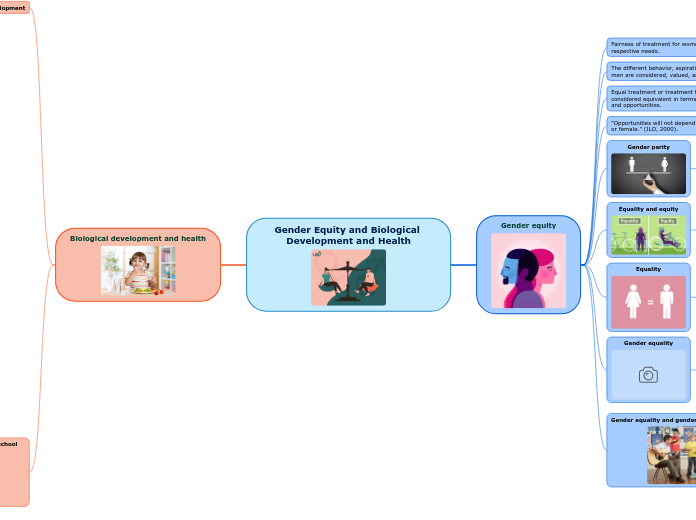Gender Equity and Biological Development and Health
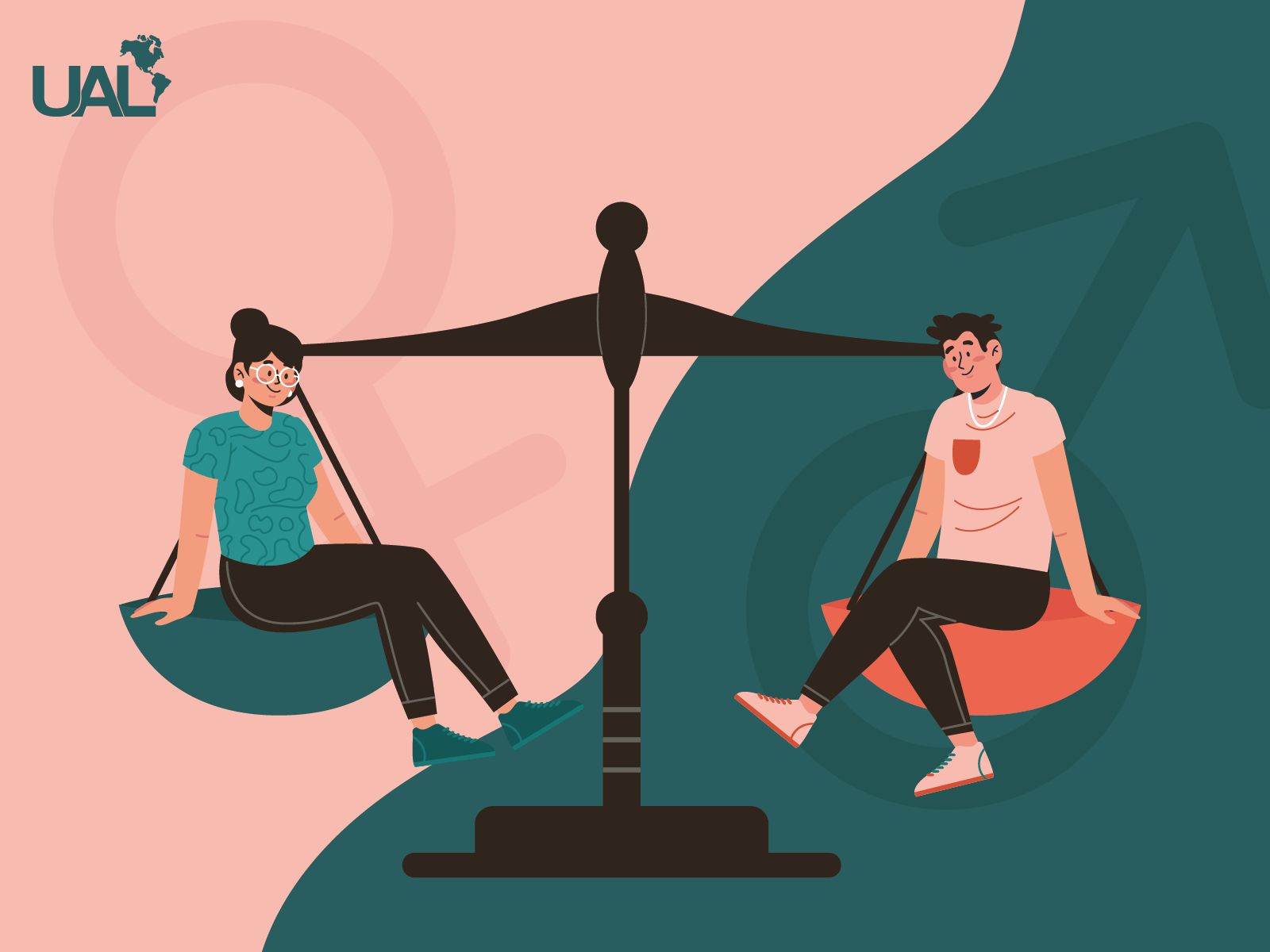
Gender equity

Fairness of treatment for women and men, according to their respective needs.
The different behavior, aspirations, and needs of women and men are considered, valued, and favored equally.
Equal treatment or treatment that is different but which is considered equivalent in terms of rights, benefits, obligations and opportunities.
"Opportunities will not depend on whether they are born male or female." (ILO, 2000).
Gender parity
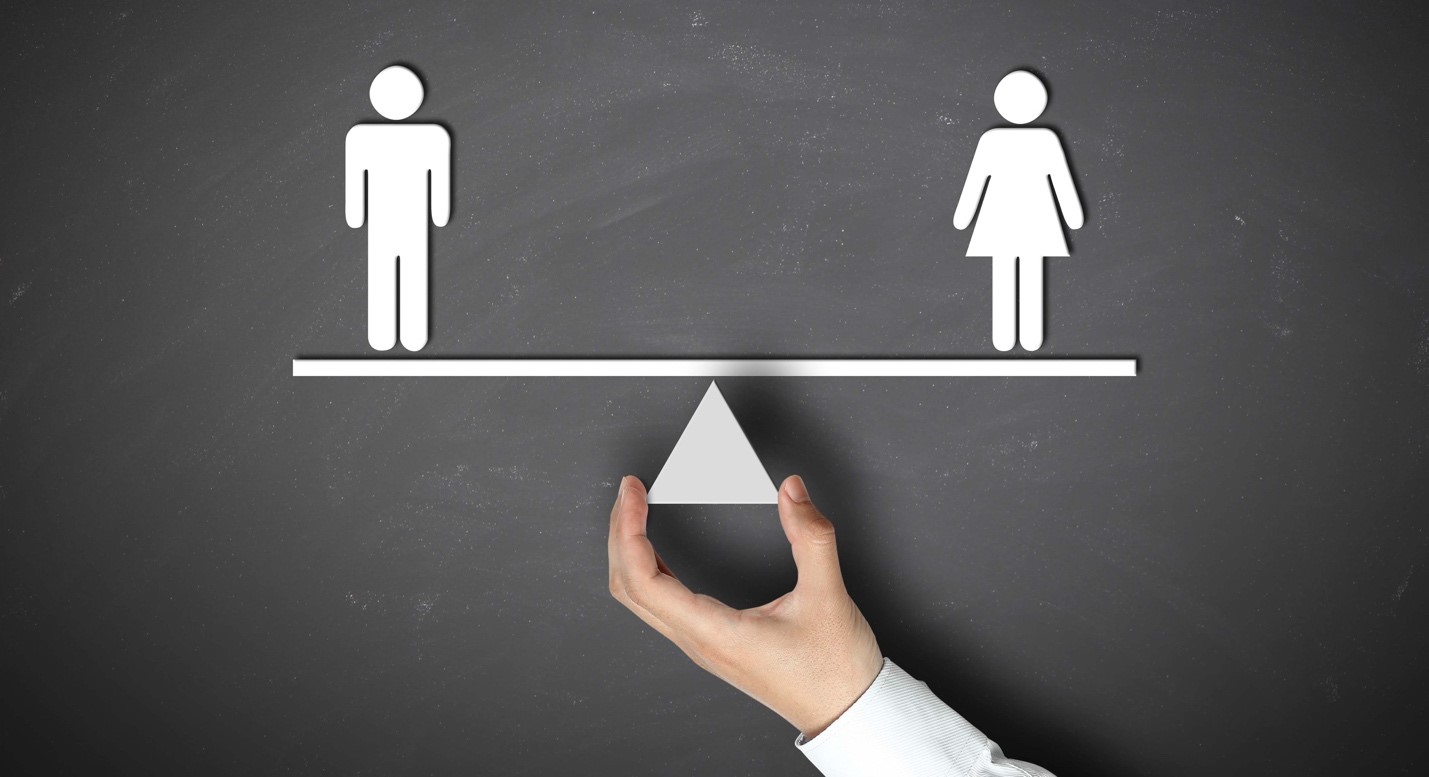
The same proportion of girls and boys enter and complete schooling.
Equality and equity
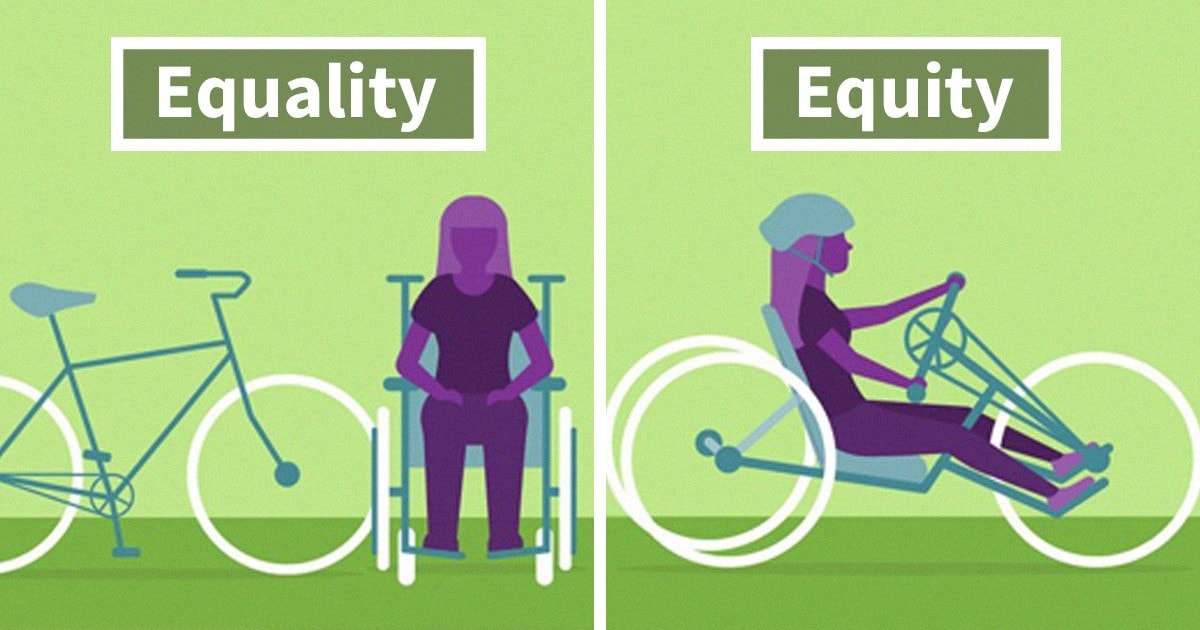
are two words associated with treating people the same or people having equal access to resources and opportunities. However, they have different meanings.
Equality

Aims to ensure that everyone gets the same thing. It is the effect of treating each person without difference.
Gender equality

Demanding ethical reasons in order to secure the conditions for men and women, boys and girls, to live full life (Unter, Challender & Rajapalan, 2005).
Gender equality and gender equity in education

Gender equality in education means that members of both sexes should legally enjoy the same rights, resources, opportunities and protection.
Traditional gender roles causing gender inequality should be removed.
Equality in the learning process is when girls and boys receive the same treatment and attention and have equal opportunities to take advantage of the process of learning.
Biological development and health

Biological development
The pre-natal stages of devlopment
/2795073-stages-of-prenatal-development-01-5a3040f6eb4d5200362d5553.png)
There are three stages of prenatal development: germinal, embryonic, and fetal.
The brain develops during the prenatal period, but it will continue to go through more changes during the early years of childhood.
Brain development before birth

The fetal brain begins to develop during the third week of gestation.
Neural progenitor cells begin to divide and differentiate into neurons and glia, the two cell types that form the basis of the nervous system.
Growth and development stages in infants and children

Cognition
Social interaction and emotional regulation
Speech and Language
Physical skills
Sensory awareness
The biology of child development and learning

Rapidity of brain development during early child-hood
The interplay of genes and environment.
The impact of stress on development
Individual differences in sensitivity to environments
The biology of adolescent and development

Adolescence is the period of transition between childhood and adulthood.
Changes that take place during this period are physical, intellectual, personality and social development.
Sexual maturation or puberty begins at different ages depending on genetic and environmental factors.
We can see an increasing in risk taking behaviors and high emotions during this period
How health affects a child and an adolescent´s school performance.

Health refers to a state of complete emotional and physical well-being and a resource for living and enjoying a full life.
There are some factors to take into consideration for having good health.
Genetics
The environment
Relationships with friends and family and the level of education and income.
The relationship between school performance and various health concerns includes the following issues:

Poor sleep.

Exercise.

Importance of breakfast.

Obesity.

Asthma.
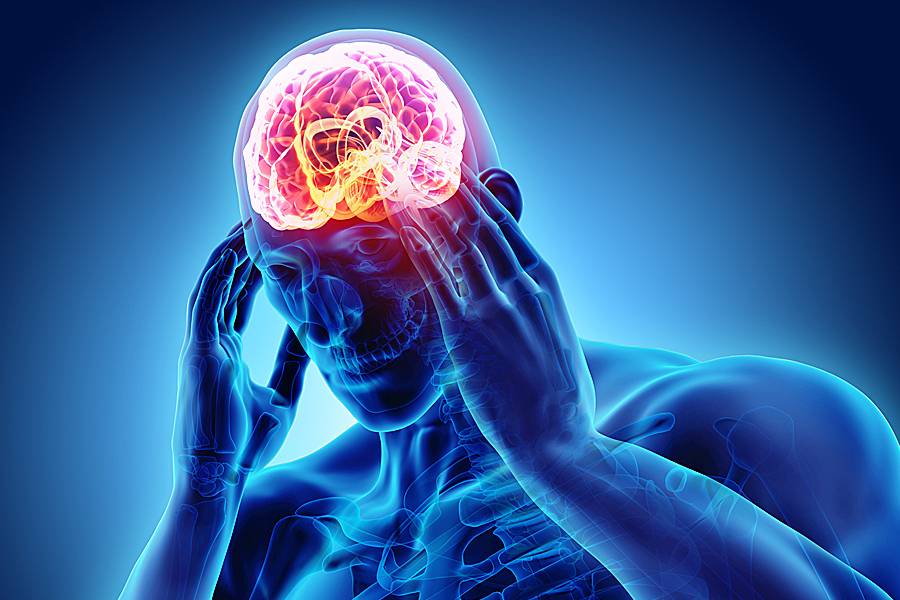
Chronic health problems.
